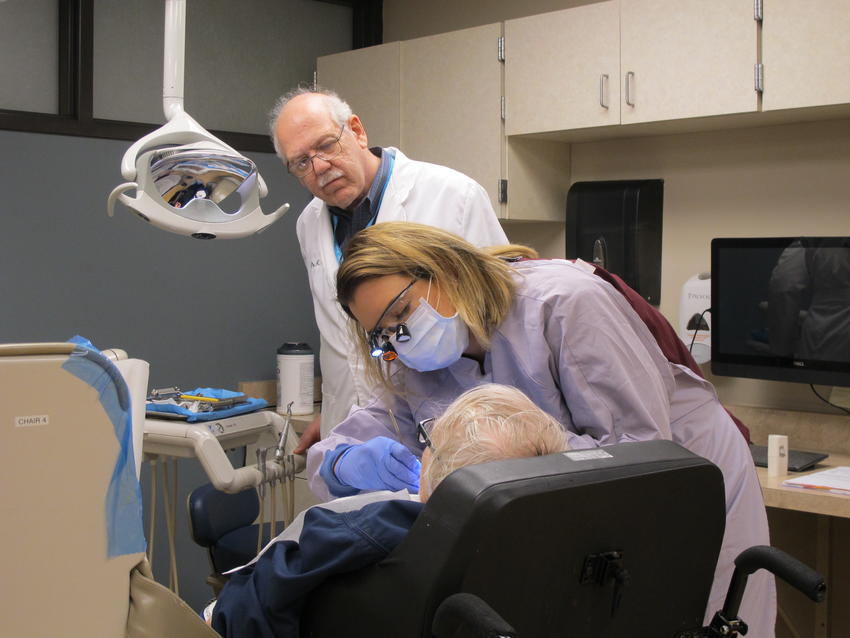Making dental care dementia-friendly

An interprofessional team at the University of Minnesota has received a five-year, $3.74 million grant from the U.S. Health Resources and Services Administration to improve the healthcare and health of Minnesota’s older adults through education and community partnerships. Collaborators include the Medical School, School of Dentistry, the Community University Health Care Center, the University of Minnesota Schools of Nursing, Public Health and Physical Therapy, the College of Pharmacy, and Fairview Health Services.
Led by the Medical School’s Jim Pacala, MD, MS, the goal is to train health care providers and interprofessional learners, and to transform primary care sites to integrate the practice and training for age-friendly geriatrics care.
School of Dentistry Associate Professor Stephen Shuman, DDS, MS, heads up the dental school’s part of the project, which includes a Dementia Friendly Dental Practices initiative. “We need to get entire communities ready for the dementia epidemic,” Shuman says. “This includes businesses, law enforcement, restaurants, local governments and especially health professionals.”
For dentistry, the need is to increase the capacity of community dental practices to care for the growing number of older adults living with dementia. The number of Minnesotans with a dementia diagnosis is expected to increase by 24 percent over the next five years, to an estimated 120,000 people, according to the Alzheimer’s Association.
“The goal of the dementia-friendly dental practice is a smoother experience for the patient, caregivers, and dental providers,” says Shuman. “The entire team needs to be involved, including front office staff, accounting, and the clinical care team. This includes recommended practices related to the physical environment, scheduling, communication, treatment planning, care delivery and more.”
Shuman works with an interprofessional team of experts on dementia care. The group, which includes representatives from the Minnesota Dental Association, Minnesota Area Agencies on Aging (AAA), and dementia care consultants, will review existing curriculum from the AAA’s ACT on Alzheimer’s initiative and augment it with new materials tailored to dental practice. Training will first be piloted with a small number of Minnesota practices and then shared broadly to build the capacity of dental practices statewide to serve patients with dementia more effectively and confidently.
“Dental practices that build their capacity in this area will be more effective and productive,” said Shuman. “The demographics are not going to change any time soon.”
Minnesota’s interprofessional dementiafriendly dental practice initiative is led by the University of Minnesota and the Metropolitan Area Agencies on aging, in collaboration with the Minnesota Dental Association. Its work is funded, in part, by the Delta Dental of Minnesota Foundation, the U.S. Health Resources and Services Administration, and the F.R. Bigelow Foundation.
Dr. Shuman directs the dental school’s Oral Health for Older Adults Program and its affiliated Walker Methodist Dental Clinic in south Minneapolis, where School of Dentistry students gain concentrated experience with an aging population and observe dementia-friendly care.